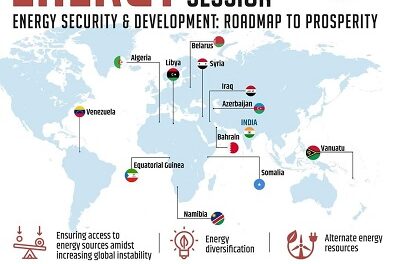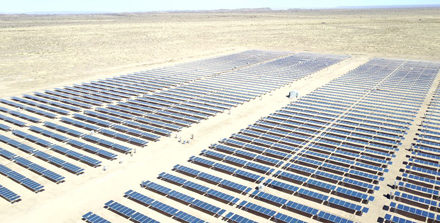
Efficiency is key in future energy policies

The current Minister of Finance and former Minister of Industrialisation, Trade and SME Development, Hon Calle Schlettwein, is a strong promotor of solar to be included in Namibia’s new Energy Policy.
Although Germany’s energy policies receive attention around the globe, a majority of energy professionals do not regard them as a global blueprint, according to a recent survey by the German member committee of the World Energy Council.
The survey, “German energy policy – a blueprint for the world” found that internationally, a large majority of the respondents (58%) are closely following the German energy transition. For one quarter of the European respondents, German energy policies have either triggered a national debate on energy or led to concrete decisions on energy policy. Outside Europe, the German influence is weak.
Energy professionals from 42 countries worldwide were polled for this survey.
Compared to the previous survey in 2015, the perception of the German energy transition has improved. Nevertheless, 60 % of respondents do not think that the German energy transition can serve as a global blueprint.
Eighty percent of the respondents said that at least parts of the German concept could be adapted in their countries. In 2015 only around 50% shared this view.
“German energy policies are increasingly stimulating international energy policy discussions while the survey clearly shows that the concept as a whole is not considered to be transmittable, or even only in parts, as being “transferable”, said Dr Carsten Rolle, the Managing Director of Weltenergierat Deutschland, summarising the results.
While 45% of Europeans indicated climate protection as the most important motivation for an energy transition, this was only true for 5 % of the respondents outside Europe, where growth (36%) and access to energy (27%) are the main issues.
“Outside Europe, the hunger for safe energy and economic growth is a far more powerful driver for an energy transition than climate protection,” noted Dr Rolle adding “to be able to export our energy transition and new technologies, we have to support [other] countries much more in tackling their respective challenges”.
Regarding the most effective climate protection tools, 92% of the respondents said that energy efficiency measures are the best way forward. These were followed by measures to price CO2, especially if the G20 countries set an example.
Dr Rolle said: “Efficiency is seen as the best way to protect the climate globally. This second pillar of the German energy policy has long been identified internationally.”
The World Energy Council is the principal network of energy leaders and practitioners promoting an affordable, stable and environmentally sensitive energy system for the greatest benefit of all. Formed in 1923, the Council is the UN-accredited global energy body, representing the entire energy spectrum, with over 3,000 member organisations in over 90 countries.











































